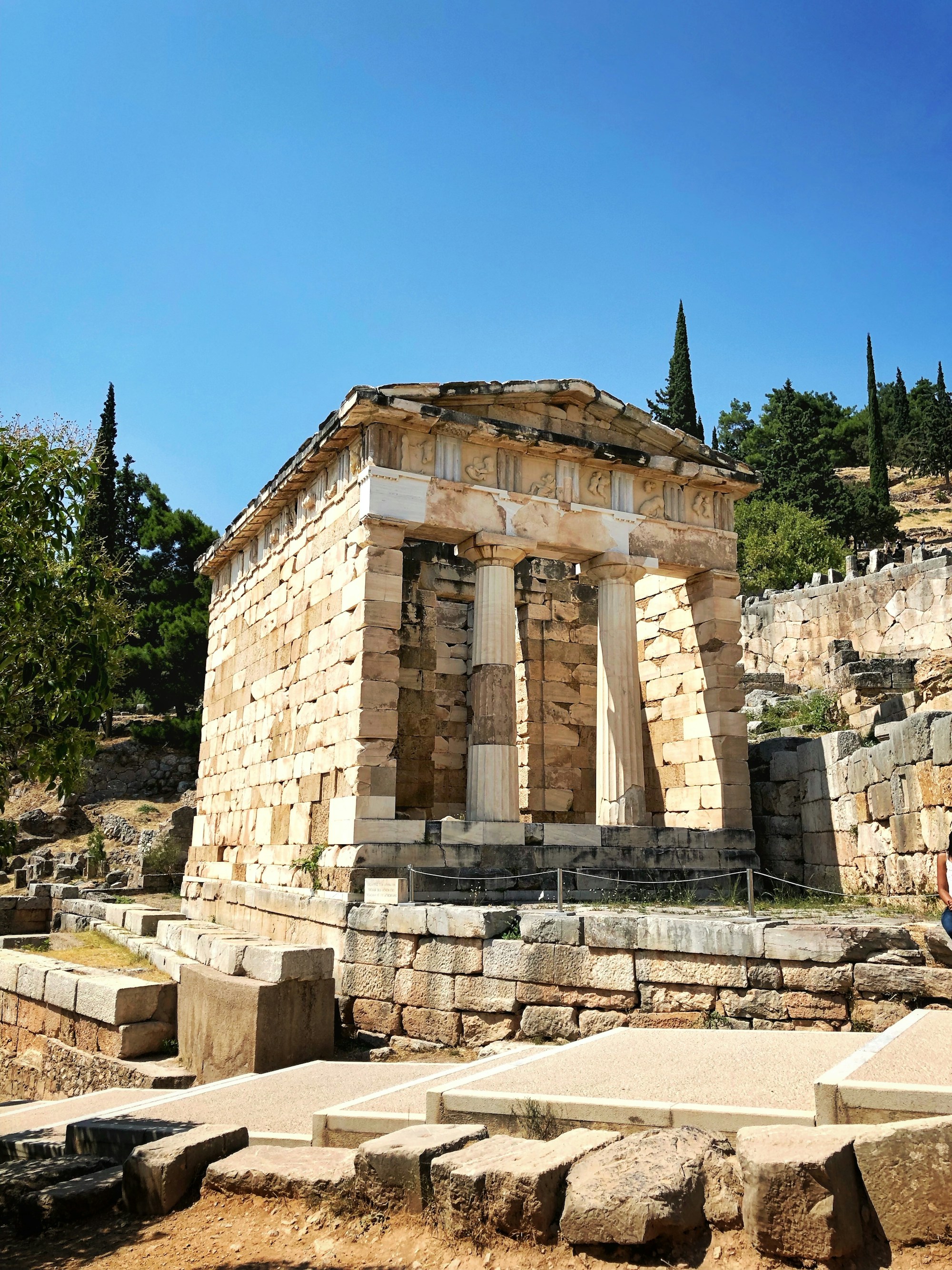Explore Delphi: History, Customs, Traditions, and Festivals
Discover Delphi's rich history, unique customs, and vibrant festivals. Dive into its timeless traditions and cultural heritage.

Explore Delphi: History, Customs, Traditions, and Festivals
Historical Context
Delphi, situated on the slopes of Mount Parnassus in Greece, has a rich tapestry of history. Known as the center of the world in ancient Greek religion, Delphi was home to the famous oracle of Apollo. The site played a crucial role in the political and cultural landscape of Greece, where leaders sought guidance from the Pythia, the priestess of Apollo, renowned for her prophecies.
Founded around the 8th century BCE, Delphi gained prominence for its Temple of Apollo, an architectural marvel of its time. The site's significance is further highlighted by the ancient theater, stadium, and numerous treasuries set up by various Greek city-states, all reflecting the pan-Hellenic nature of Delphi.
Archaeological Highlights
- Temple of Apollo: The centerpiece of Delphi, where the Pythia delivered oracles.
- Ancient Theater: Offering stunning views of the valley, it could seat about 5,000 spectators.
- Stadium: Used for the Pythian Games, this stadium was one of the largest of its time.
- Treasury of the Athenians: An excellent example of Doric architecture, dedicated by the city of Athens after their defeat of the Persians.
- Sibyl Rock: Where the prophetess Sibyl is believed to have delivered her oracles.
- Castalian Spring: Pilgrims would purify themselves before consulting the oracle.
Cultural Practices
The customs and traditions of Delphi are deeply influenced by its historical and mythological heritage. To truly understand Delphian culture, a visit to the site often includes engaging with the following practices:
- Ritual Purifications: At the Castalian Spring, a practice dating back to ancient times for purification before visiting the Temple of Apollo.
- Offerings to Apollo: Both historical and modern visitors frequently leave small tributes or tokens in reverence to Apollo.
- Vegetarian Fare: Some local traditions still avoid meat consumption on certain days, a nod to ancient practices.
- Traditional Festivals: Modern-day Delphi holds cultural events that echo the grand festivals and games of ancient times.
Festivals
The Pythian Games
Historically, the Pythian Games were one of the four Panhellenic Games of Ancient Greece, second in importance only to the Olympic Games. Held every four years in honor of Apollo, the Pythian Games featured musical contests—an homage to Apollo's patronage of the arts—alongside athletic competitions. The current traditions preserve this legacy with events focused on classical music, theater, and athletic endeavors.
Delphic Festival
The modern Delphic Festival, held biennially, celebrates the rich cultural and historical heritage of Delphi. The festival is a vibrant blend of:
- Dance Performances: Traditional Greek dances performed by local and visiting troupes.
- Theatrical Productions: Staged in the ancient theater, these productions often perform works of ancient Greek playwrights.
- Musical Concerts: Featuring both modern and classical Greek music, celebrating Apollo's musical legacy.
- Art Exhibitions: Showcasing local artists and artworks inspired by Delphi's rich history.
The Delphic Festival offers a perfect blend of the ancient and the contemporary, ensuring that the cultural heritage of this sacred place continues to thrive.
Apollo's Day
Held on the 7th day of the Delphic month Bysios (equivalent to late February or early March in the modern calendar), Apollo's Day is a time of feasting and celebration. This tradition comes alive with:
- Feasting: Featuring local foods such as olives, cheeses, fresh vegetables, and specially prepared meats.
- Music and Dancing: Local people gather to sing hymns to Apollo and perform traditional dances.
- Competitions: Local sports and games echo the spirit of the Pythian Games.
Local Customs and Anecdotes
Delphi is not only about its grand historical landmarks but also its charming local customs and stories passed down through generations. For instance:
- It is said that throwing a coin into the Castalian Spring and making a wish can bring good fortune.
- Locals often tell stories of the protective spirits of the mountain, believed to offer guidance to those who respect the natural beauty of Delphi.
- Shepherds from the nearby villages share tales of Apollo’s favor in ensuring fertile pastures and abundant flocks.
Interesting Facts
- The phrase “know thyself” is famously inscribed on the Temple of Apollo, a testament to the philosophical depth of Delphian culture.
- Delphi was considered the navel (omphalos) of the world in ancient Greek culture, marked by the Omphalos stone, which still stands today.
- The Pythia, or Oracle of Delphi, was chosen from among the women of Delphi and went through a rigorous preparation process to serve as Apollo’s mouthpiece.
- The area around Delphi is also rich in biodiversity, with many protected species of flora and fauna.
Travel Tips
- Best Time to Visit: Late spring (April to June) and early autumn (September to October) offer pleasant weather and fewer crowds.
- Accommodation: Delphi offers various options, from charming guesthouses to more luxurious hotels, often with breathtaking views of the Parnassus mountains.
- Local Cuisine: Don’t miss trying kotopoulo hilopites (chicken with pasta), local cheeses, and desserts like baklava.
- Guided Tours: Engaging a local guide can deeply enhance your understanding of Delphi’s rich history and cultural practices.
- Respect the History: While exploring the archaeological sites, always follow the guidelines and respect the antiquities. Touching or climbing on the ruins is strictly prohibited.
